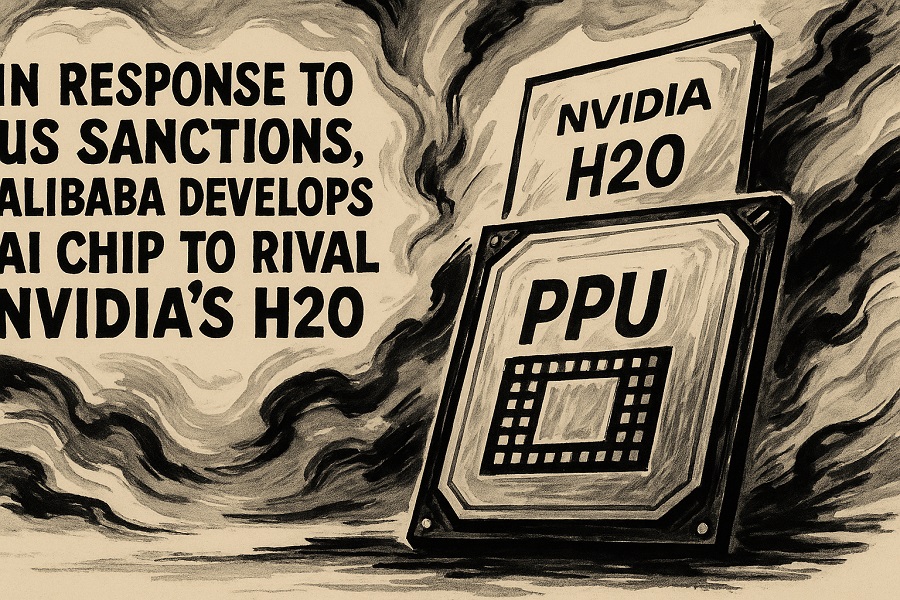Blog
Bill Gates, Jensen Huang – Thanks to AI,working three days a week will soon be achievable in the future?

Bill Gates, Jensen Huang – Thanks to AI, will working three days a week soon be achievable in the future?
The CEO of Zoom shares the same idea as Bill Gates, Jensen Huang and Jamie Dimon: Thanks to artificial intelligence, working three days a week will soon be achievable in the future.
However, the promised productivity improvement has yet to be seen.
Yuan Zheng, the CEO of Zoom, believes that AI might shorten the working days of a week to three or four, allowing people to have more time to do what they like. But this can only be achieved when AI becomes more reliable and can bring about more productivity improvements. Many tests have shown that productivity improvement is not significant, and AI is particularly good at talking nonsense, which forces companies to find real people to correct errors. It seems that generative AI has hit a bottleneck. Its “hallucinations” are an unsolvable big problem and are getting worse and worse. It still needs a large number of real person teams to support it behind the scenes.
Business tycoons hold different opinions on how AI will transform work. Yes, for instance, Dario Amodi, the CEO of Anthropic, predicted a major disaster for white-collar jobs. Others, such as Demis Hassabis, the head of Google DeepMind, believe that this technology will usher in a bountiful golden age. Sam Altman, the CEO of OpenAI, even said that thanks to AI, Generation Z is the luckiest generation in history.
As robots and AI assistants take over human work, an increasing number of optimistic executives are beginning to envision shortening their weekly working hours. Zoom’s CEO Yuan Zheng even imagined that his employees would only need to work three to four days a week in the future.
In a recent interview with The New York Times, he emphasized that the rapid development of AI will completely transform productivity, enabling people to complete work that previously took several days within just a few hours. He said, “If you make good use of AI, you might achieve the same effect with less effort.” He firmly believes that technology will bring about productivity improvement.
I think, if AI can improve the lives of all of us, then why should we still work five days a week? All companies will adopt a working mode of three or four days a week. “I think this can help everyone save time,” Yuan Zheng told The New York Times.
Zoom was extremely popular during the pandemic. Now, they are making big investments in AI functions, such as real-time meeting minutes or intelligent shift scheduling assistants. All these tools are designed to reduce friction in work and enhance collaboration efficiency. However, not all users like these AI functions, and some of them even have privacy issues.
This is a view that several industry bigwigs all agree with
Not only the CEO of Zoom, but also many tech industry bigwigs have said that AI can shorten the weekly working hours. Bill Gates, co-founder of Microsoft, said on the talk show “The Tonight Show by Jimmy Liao” that in the next ten years, humans will no longer need to do “most tasks”, so that the working days per week can be less than five.
When humans are no longer necessities, those who remain at their posts will no longer need to clock in for work every day. What will future work be like? Shouldn’t we work only two or three days a week? “To put it another way, the purpose of life is not just work,” Bill Gates said. AI tools can assist employees in multiple industries, freeing them from various cumbersome tasks.
Nvidia CEO Jensen Huang also agrees to shorten the working days. He said, “We are just the beginning of the AI revolution now. If all industries continue to embrace AI at the current pace, working four days a week might become a reality.” He believes that this can enable enterprises to create more value and allow employees to focus their energy on other tasks.
Even the financial industry, which is known for working 80 hours a week, may eventually get a breather due to AI automation. Jamie Dimon, the CEO of jpmorgan Chase Bank in the United States, predicted many years ago that this technology could bring about a better work-life balance. Of course, this also means that it will replace some jobs.
Many practices have proved to be beneficial.
For instance, in the UK, in the second half of 2022, 61 companies (with approximately 2,900 employees) piloted a four-day workweek. Among them, 23 companies released their financial data. Their revenue remained basically unchanged before and after the trial, with an average growth of 1.4%. The report shows that working four days a week can reduce employees’ stress and the risk of getting sick.
Approximately 71% of employees reported a reduction in job burnout, and 39% said they were less stressed than at the beginning of the test. The experiment also found that compared with the same period of the previous year, sick leave decreased by 65% and the number of people leaving their jobs dropped by 57%. Eighteen companies have confirmed that they will permanently implement a four-day workweek.
Kickstarter has been implementing a four-day workweek since 2021, and Microsoft Japan also piloted it in 2019, resulting in a 40% increase in productivity. We should let technology benefit workers. “This means giving you more time to be with your family and friends, to study, and to do whatever you want,” said Senator Bernie Sanders.
A survey conducted by Fiverr International LTD in 2023 revealed that the French are ready to embrace this change. The report indicates that 71% of the French employees surveyed believe they can complete their weekly workload in four days instead of five, and people of all ages hold this view.
Optimistic remarks, however, are divorced from reality.
A four-day workweek has been tested in some European countries, such as Iceland and Belgium, but it has not yet been popularized in American companies. An American coaching company, Exos, piloted shortening working days, and the results showed that it was beneficial to the company: employees’ job burnout was reduced by half, and productivity increased by more than 24%.
Huang Rengxun, Jamie Dimon, Yuan Zheng and Bill Gates are all suggesting that the advancement of AI might become the driving force for this initiative to move forward. They believe that the reduction in working hours brought about by automation is a good thing for human employees. This sounds like a celestial melody to the workers living in the “996” work culture, but the reality is not so optimistic.
This depends on the development of AI in the coming years. The productivity of AI is still uncertain. Some studies show that AI can enhance productivity, but others question that it merely makes users feel more efficient. A recent test by the British government on Microsoft 365 Copilot did not reveal a significant increase in productivity.
The average time I made PowerPoint slides was 7 minutes faster, but due to the poor quality, a lot of revisions were needed. The same voice is heard from the Australian government. After the probation period, the employees felt that Microsoft’s AI was not as useful as they had imagined.
In the field of software engineering, coding AI assistants is supposed to make programmers’ work easier and faster. AI companies like Microsoft claim that their tools have enhanced developers’ productivity, but rigorous independent research results are exactly the opposite. A recent study by Model Evaluation & Threat Research found that using AI tools can actually waste developers’ time.
In the study, users expected productivity to increase by 24%, but the research team found that it was actually 19% slower. A previous study also found that using AI tools does not increase coding speed, but significantly raises the Bug rate.
The company hired people to clean up the code written by AI
With the rise of AI tools like ChatGPT, it is now possible to describe a program in natural language (such as French), and then have an AI model translate it into usable code. Andre Kapasi, a former researcher at OpenAI, gave this approach a name, “vibe coding”. This practice quickly became popular in the tech circle. Google even claims that 25% of their code is generated by AI.
The reason why “sensory programming” attracts attention is that it may lower the threshold for software development. However, it remains questionable whether this method can reliably generate code suitable for practical applications. Research shows that AI is far from meeting the requirements.
It was in this situation that companies like Harsh Kumar came into being. Harsh Kumar explained that his clients often give him AI-generated, unstable or completely unusable applications or websites. His responsibility is to fix these messes or organize the AI-generated code, and ultimately create a usable software product. This Indian company said that the number of their customers is quite considerable.
Therefore, Harsh Kumar belongs to a new job category called “AI-Generated Code Cleaning Expert”. So, humans are back to save AI, and some company executives are trying to hype AI as a revolution and use it to lay off staff.
At present, most AI projects have failed. According to data from the Massachusetts Institute of Technology, the failure rate is as high as 95%. Although everyone is competing to integrate new and powerful AI models, only about 5% of AI pilot projects can bring about rapid revenue growth. The vast majority of projects have come to a standstill, having almost no measurable impact on the company’s income statement. This harsh reality also confirms some recent studies that the capabilities of AI have been overestimated.
The CEO of Zoom admitted that some jobs would be laid off
Executives are also aware that the job market will undergo significant changes, and some positions will inevitably be automated in this transformation. The CEO of Zoom openly admitted that some employees would be laid off. However, the billionaire added that this was just another adjustment, much like the dramatic changes brought about by the Industrial Revolution and the Internet era.
Whenever the technological paradigm changes, some jobs disappear, but at the same time, new opportunities are created. For some positions, such as junior engineers, we can use AI to write code. But you still need to manage these codes. “You will also create many digital agents, and you need someone to manage them,” Yuan Zheng admitted in the interview.
Data from employment consulting firm Challenger, Gray and Christmas shows that the number of layoffs in July 2025 has increased significantly, with nearly half of them related to AI and “technology upgrades”. In the technology industry, 549 companies cut more than 150,000 jobs in 2024. Since the beginning of this year, more than 80,000 employees in this industry have been laid off.
For Generation Z, future jobs may seem intimidating as young graduates are still struggling to find work, partly because companies feel they can entrust those entry-level tasks to AI. And the actual situation is also astonishing. A study shows that 89% of employers are reluctant to recruit young graduates, among whom 37% would rather hire AI than hire a university graduate of Generation Z.
The remarks of Zoom’s CEO confirm the common mindset shift among executives, that is, AI will not only automate tasks but also reshape the fundamental structure of work. The discussion also shifted from anxiety about automation to the transformation of lifestyle. If Yuan Zheng and his colleagues are right, then the next generation of workers may have more free time, and all of this will be attributed to AI.
But all of this is still undetermined. AI not only needs to prove itself, but also business executives need to learn to trust this technology more, especially when it has to take over a large number of tasks and even replace employees for a whole day’s work.
Although things seem to be developing rapidly, it may still take a long time for enterprises to apply AI to the point where employees can rest for a day or two. For now, the test results conducted by multiple institutions are not optimistic. AI makes mistakes, yet the company has to recall the laid-off employees to clean up the mess.

Thanks to AI working three days a week will soon be achievable
The sweet lie of a “three-day workweek”
The core driving force behind the “three-day workweek” advocated by tech industry leaders is the ultimate manifestation of “Instrumental Rationality”. They believe that enhancing efficiency through AI can liberate humanity and thus create a better society. This is a typical engineer’s mindset: as long as technical problems are solved, social problems will be readily resolved.
This kind of thinking ignores the complexity of human existence. For the vast majority of people, work is not merely a means of earning money. It carries our social identity, self-worth, sense of achievement and belonging. When AI takes over most of the “economically valuable” jobs, how can we fill the huge mental void that arises from it? If a person no longer needs to prove his worth through work, how should he define himself?
A classic philosophical question: If a person’s life is filled with material abundance but has no purpose or meaning, is he truly happy? The “efficiency dividend” promised by AI is undoubtedly alluring, but it cannot address our deep-seated needs for meaning, connection and creativity. AI can write code, but it cannot experience the joy of creation. It can diagnose diseases, but it cannot feel the sense of achievement of curing patients. Therefore, blindly pursuing efficiency without considering the “meaning of human life” is a dangerous trap of “instrumental rationality”.
The binary opposition between “illusion” and “reality”
The news mentioned that the problem of AI’s “hallucinations” remains serious and even requires humans to “clean up the code”. This reveals a harsh reality behind the optimistic rhetoric of tech leaders: AI is not a perfect solution; it may create more new problems than it solves old ones.
The so-called “AI productivity improvement” is often a “subjective perception” rather than an “objective fact”. The acceleration of AI in certain tasks may come at the expense of quality and reliability. When enterprises carry out large-scale layoffs in pursuit of short-term efficiency, only to find later that they need to hire more people to “clean up the mess”, this is not only an economic waste but also a satire on “technological progress”.
This binary opposition between “illusion” and “reality” reminds me of a sociological concept: “Manufactured Consent”. Tech giants use media promotion to instill in the public the narrative that AI will bring a bright future, thereby encouraging people to voluntarily accept layoffs and an uncertain future. This is a clever manipulation of power. We must stay clear-headed and not be misled by those glamorous PPTS and optimistic CEO remarks. Instead, we should focus on the actual performance of AI in the real world and the real predicaments of ordinary people who have been laid off.
From “Grand Narratives” to the return of “individual dignity” : An ethical Challenge that must be faced
The remarks of Sam Altman, Bill Gates and others are essentially a Grand Narrative about the future of humanity. They predict the future from the perspective of global economic and industrial transformation, but seldom pay attention to the specific impacts at the individual level. However, philosophy always focuses on the dignity and value of the individual.
As mentioned in the news, the impact of AI on Generation Z is particularly profound. The disappearance of junior positions is not only an economic loss but also a disruption to the career development paths of young people. This generation of young people should have accumulated experience and built confidence in junior positions. When these “steps” are removed, how will they grow?
This “grand narrative” neglects the unique life journey of each individual. For a fresh graduate, a stable job is not merely a source of income; it is also the starting point for him to integrate into society and realize his self-worth. If this starting point is replaced by AI, where will his future lie? We cannot merely brush it off with empty terms like “retraining” or “skill improvement”. We must confront a profound ethical issue: In the AI era, how can we ensure that every individual can obtain a dignified job opportunity and realize their unique value?
The vision of a “three-day workweek” is undoubtedly beautiful, but the prerequisite for its realization is that we can solve the reliability issue of AI, bridge the gap between the rich and the poor in society, and rebuild the value system of humanity. This requires us to go beyond the simplistic “technological determinism” and examine AI with a more humanistic and responsible attitude.
Ultimately, the revolution of AI is not a technological competition, but a profound dialogue about the future of humanity. We should not only listen to the voices of ceos from Silicon Valley, but also to those of everyone – the laid-off workers, the young people who feel lost in the face of AI, and the philosophers and thinkers who are committed to building a fairer society. Future work should not only be about efficiency, but also about meaning, dignity and the true happiness of humanity.
Introduction to basic techniques for AI (artificial intelligence)



